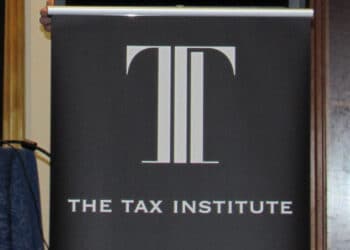Rice Warner referenced findings from the Association of Superannuation Funds of Australia that found Labor has already reduced tax concessions by about $8.5 billion a year since it took office five years ago, adding it now seeks a further $1 billion a year saving.
As a result there are six measures that are all potential cost savings suggestions at the next Budget.
The first is an increase to the concessional contributions tax from 15 per cent to 17.5 per cent, given that the government is rebating super taxes for those earning up to $37,000.
But this would be a poor policy because it would lead to a different tax rate for fund earnings and on concessional contributions received, and reduce the attractiveness of super enough for some people to consider saving through alternate vehicles, Rice Warner stated.
Another option the government is likely to look at is taxing contributions at a higher rate of 30 per cent for those earning more than $180,000 per year, rather than over $300,000. However, this could reduce short-term taxes and drive investments into less regulated areas, Rice Warner said.
Taxes on investment income could be raised, say from 15 per cent to 17.5 per cent, but this would also be poor policy as it would reduce net investment returns.
“High fund earnings have the greatest impact on building superannuation for all members,” Rice Warner stated.
“Reducing net returns will increase the future demand for the age pension.”
The government may look to tax pension earnings, and Rice Warner said it supported a Henry Review recommendation to equalise earnings for accumulation accounts and pension accounts – provided total taxes received are not increased.
“We believe there would be merit in having a single tax rate across all accounts. However, the long-term tax rate should be set in the order of 10 per cent rather than the 15 per cent on accumulation accounts. We do not believe the government should tax pension earnings without reducing taxes in the accumulation phase,” the firm said.
Taxing lump sums is another option because at present, members can take a tax-free lump sum beyond age 60, or for the under-60s with balances up to $175,000.
“The government could tax large lump sums at a higher rate, but this would only work if they reintroduced maximum withdrawal factors on account-based pensions. It is unlikely this measure would raise much revenue, so why bother?” Rice Warner argued.
The sixth potential option would be making the transfer from accumulation to pension a capital gains tax event.
Rice Warner said this would be a “cynical” move and, while it could be argued it would mostly affect SMSF trustees and hence wealthier Australians, it would also affect some APRA fund members.
Rice Warner suggested three “sensible” changes the government could look at, including reassessing the cost of the aged pension, saying it estimated the present value of age pensions to the current generation of retirees is approaching $600 billion.
The government should also look at defining the long-term required structure of superannuation, given the industry has been “battered by annual changes” and needs stability.
A simple system could be structured around retirement that: reduces the lump sum available on retirement to no more than once times average earnings (about $72,500) scaled in over five years; reintroduces maximum withdrawal values on account-based pensions; raises the preservation age to 62, binding it at five years before the age pension eligibility age; and forces retirees to use much of their own superannuation before they fall back on social security.
Rice Warner’s final suggestion was to make the additional three per cent contribution, from nine per cent up to 15 per cent, an after-tax benefit.


